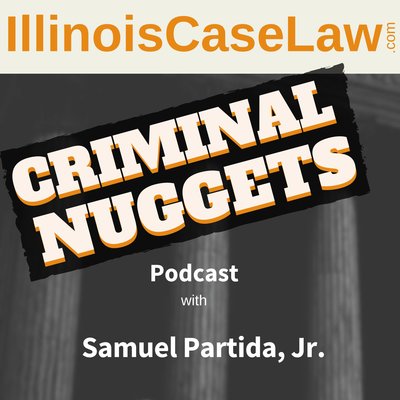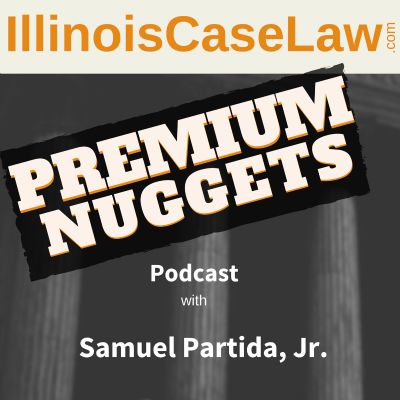Mar 21, 2017
Should the rules allow judges to do something about bigotry that's
discovered during jury deliberations?
Your browser does not support the audio element.
The recent opinion from the Supreme Court of the United States, Pena-Rodriguez v. Colorado, SCOTUS (March 2017) poses a dilemma for trial judges.
What to do when it becomes apparent that a bigot was allowed to deliberate in a criminal case?
What Happened
The defendant was convicted by jury trial in Colarado of sexaually contact with minors. Two jurors told defense counsel that, during deliberations, another juror had expressed anti-Hispanic bias toward petitioner and petitioner’s alibi witness.
Defendant’s counsel reported this to the court and, with the court’s supervision, obtained sworn affidavits from the two jurors.
Here are some of things the third juror (biased juror) told the other jurors:
● He “believed the defendant was guilty because, in the biased juror’s experience as an ex-law enforcement officer, Mexican men had a bravado that caused them to believe they could do whatever they wanted with women.”
● Dude said Mexican men are physically controlling of women because of their sense of entitlement, and further stated, “I think he did it because he’s Mexican and Mexican men take whatever they want.”
● The biased juror further explained that, in his experience, “nine times out of ten Mexican men were guilty of being aggressive toward women and young girls.”
● Finally, the guy said that he did not find petitioner’s alibi witness credible because, among other things, the witness was “an illegal.”
Ultimately, though, the judge didn't do anything about this bigotry in the jury deliberation room.
The reason was because of something called the...
The "No-Impeachment" Rule
A general rule has evolved to give substantial protection to verdict finality and to assure jurors that, once their verdict has been entered, it will not later be called into question based on the comments or conclusions they expressed during deliberations.
This principle, itself centuries old, is often referred to as the "no-impeachment" rule.
Origins of the Rule
The original idea behind the rule was that a juror could not “impeach” their verdict by talking about their deliberation.
So the rule did not allow them to testify about their subjective mental process or about objective events that occurred during deliberations.
The rule morphed from there.
Federal Rule 606(b)
The common-law development of the no-impeachment rule reached a milestone in 1975, when Congress adopted the Federal Rules of Evidence, including Rule 606(b).
Congress, endorsed a broad "no-impeachment" rule, with only limited exceptions for outside extraneous influences on the jurors. The current version of Rule 606(b) states as follows:
“(1) Prohibited Testimony or Other Evidence. During an inquiry into the validity of a verdict or indictment, a juror may not testify about any statement made or incident that occurred during the jury’s deliberations; the effect of anything on that juror’s or another juror’s vote; or any juror’s mental processes concerning the verdict or indictment. The court may not receive a juror’s affidavit or evidence of a juror’s statement on these matters. (2) Exceptions. A juror may testify about whether: (A) extraneous prejudicial information was improperly brought to the jury’s attention; (B) an outside influence was improperly brought to bear on any juror; or (C) a mistake was made in entering the verdict on the verdict form."
Illinois Rule 606(b) - Inquiry Into Validity or Verdict or Indictment
The Illinois Rules says,
"Upon an inquiry into the validity of a verdict or indictment, a juror may not testify as to any matter or statement occurring during the course of the jury’s deliberations or to the effect of anything upon that or any other juror’s mind or emotions as influencing the juror to assent to or dissent from the verdict or indictment or concerning the juror’s mental processes in connection therewith. But a juror may testify (1) whether any extraneous prejudicial information was improperly brought to the jury’s attention, (2) whether any outside influence was improperly brought to bear upon any juror, or (3) whether there was a mistake in entering the verdict onto the verdict form. A juror’s affidavit or evidence of any statement by the juror may not be received concerning a matter about which the juror would be precluded from testifying."
Illinois Rule of Evidence 606(b).
Issue
The instant case presents the question whether there is an exception to the no-impeachment rule when, after the jury is discharged, a juror comes forward with compelling evidence that another juror made clear and explicit statements indicating that racial animus was a significant motivating factor in his or her vote to convict.
In this case, the Court must decide whether the Constitution requires an exception to the no-impeachment rule when a juror’s statements indicate that racial animus was a significant motivating factor in his or her finding of guilt.
Before You Go…
This is the kind of stuff I talk about the Premium Nuggets Podcast.
This is a podcast produced exclusively for Illinois Criminal Law Attorneys.
If podcasts are new to you, then get started by hitting the button below. That way you join other Illinois criminal law attorneys who receive daily email updates relevant to criminal lawyers AND you'll start to see what this is all about.
Hit the button below to get started.
Are You Ready To Consistently Outmatch & Outgun Your Criminal Litigation Opponent?
 How do you get a judge to do what you want and dominate your
courtroom?
How do you get a judge to do what you want and dominate your
courtroom?



